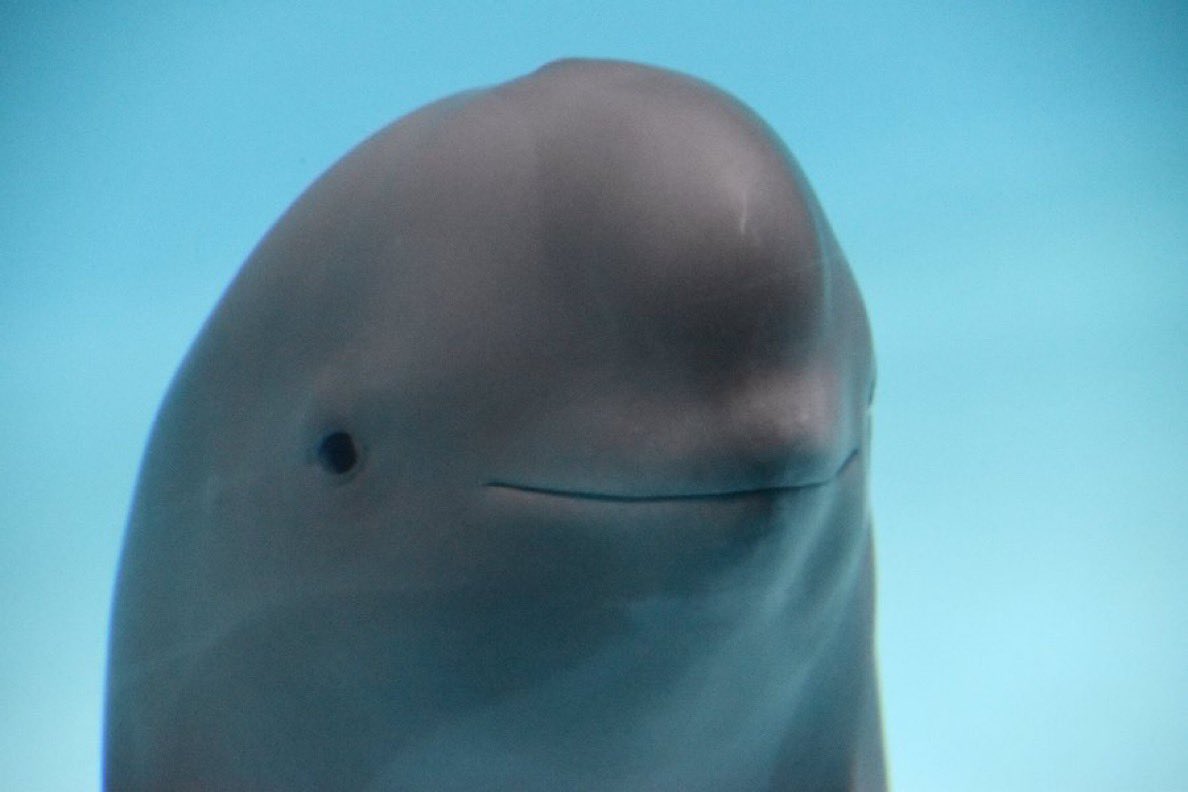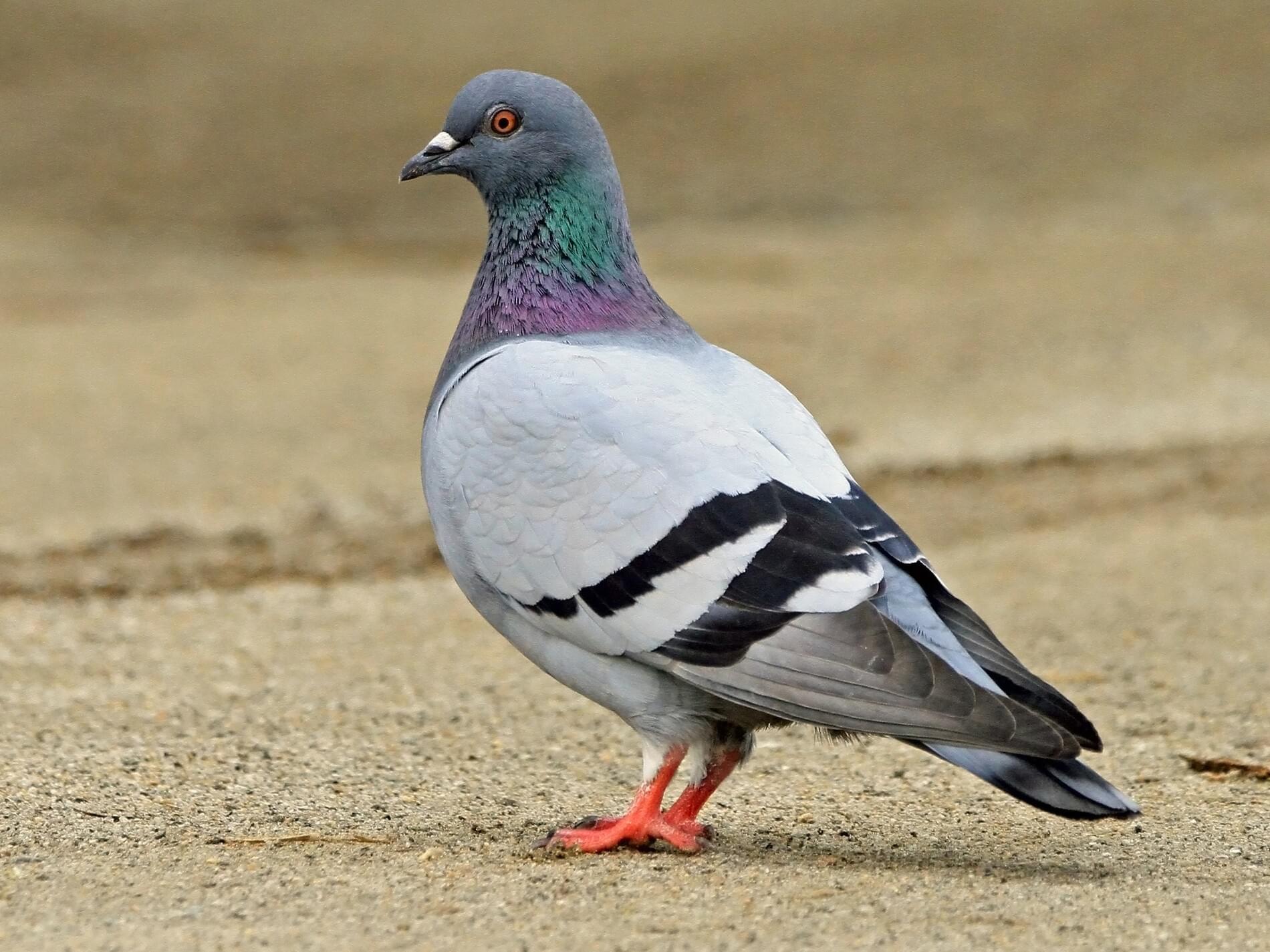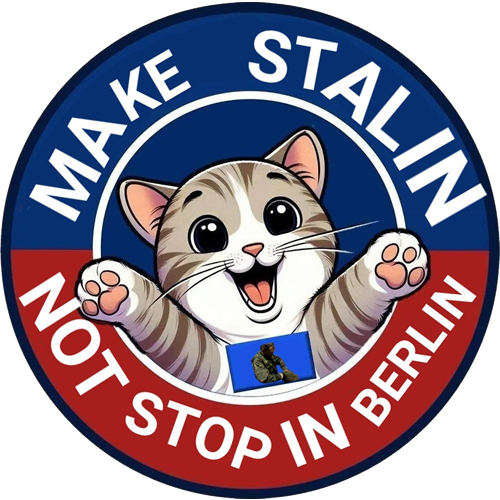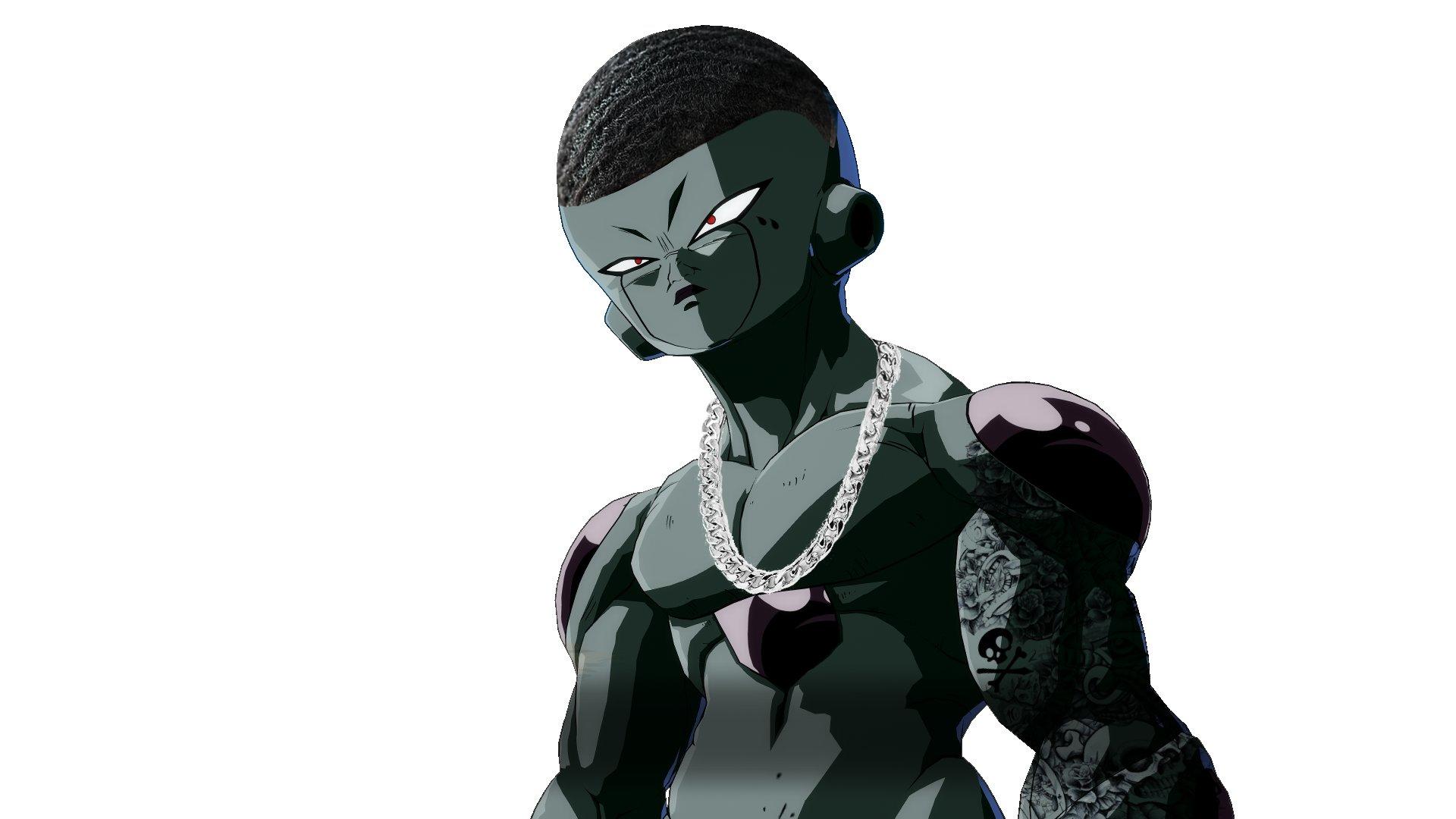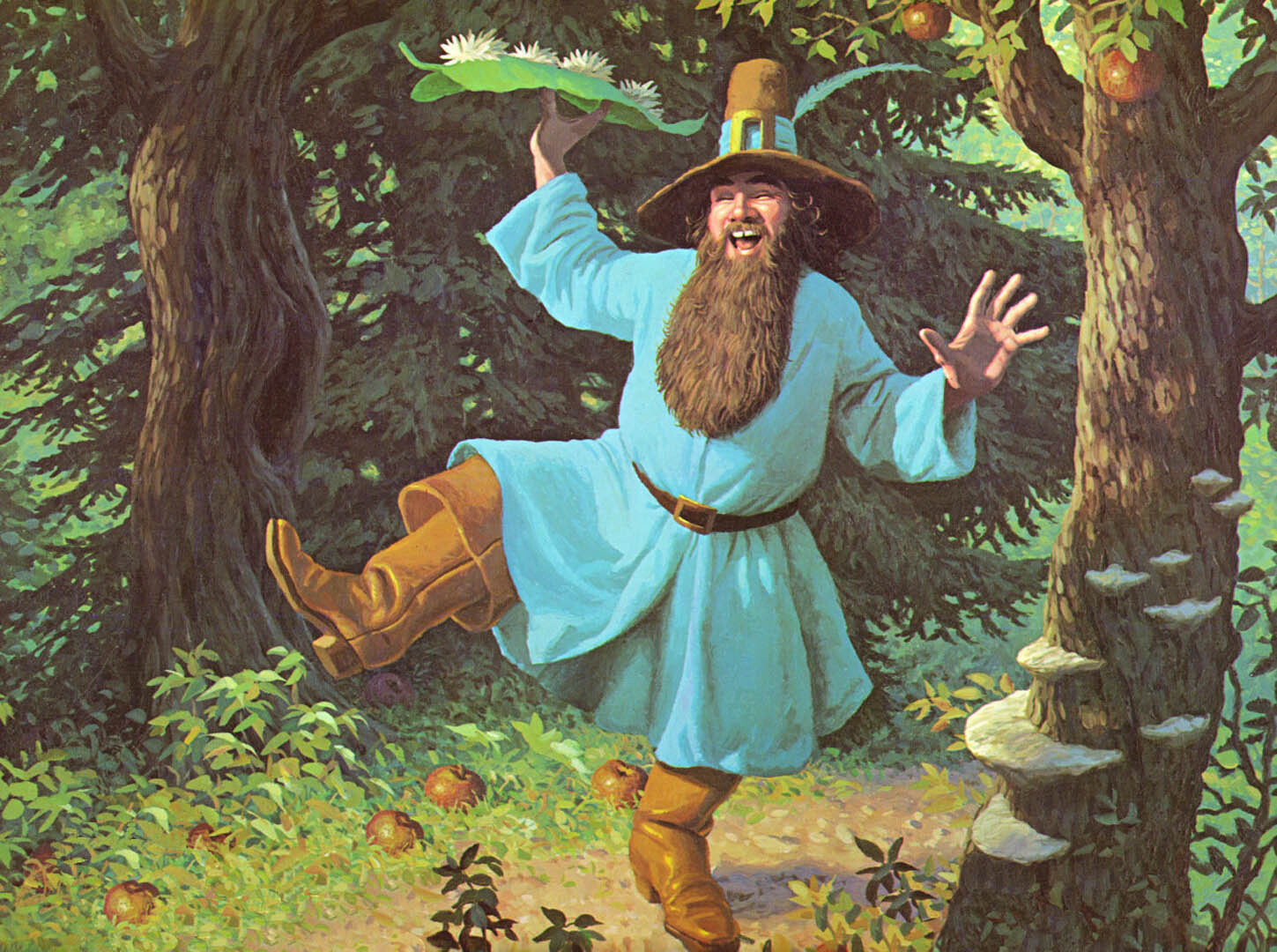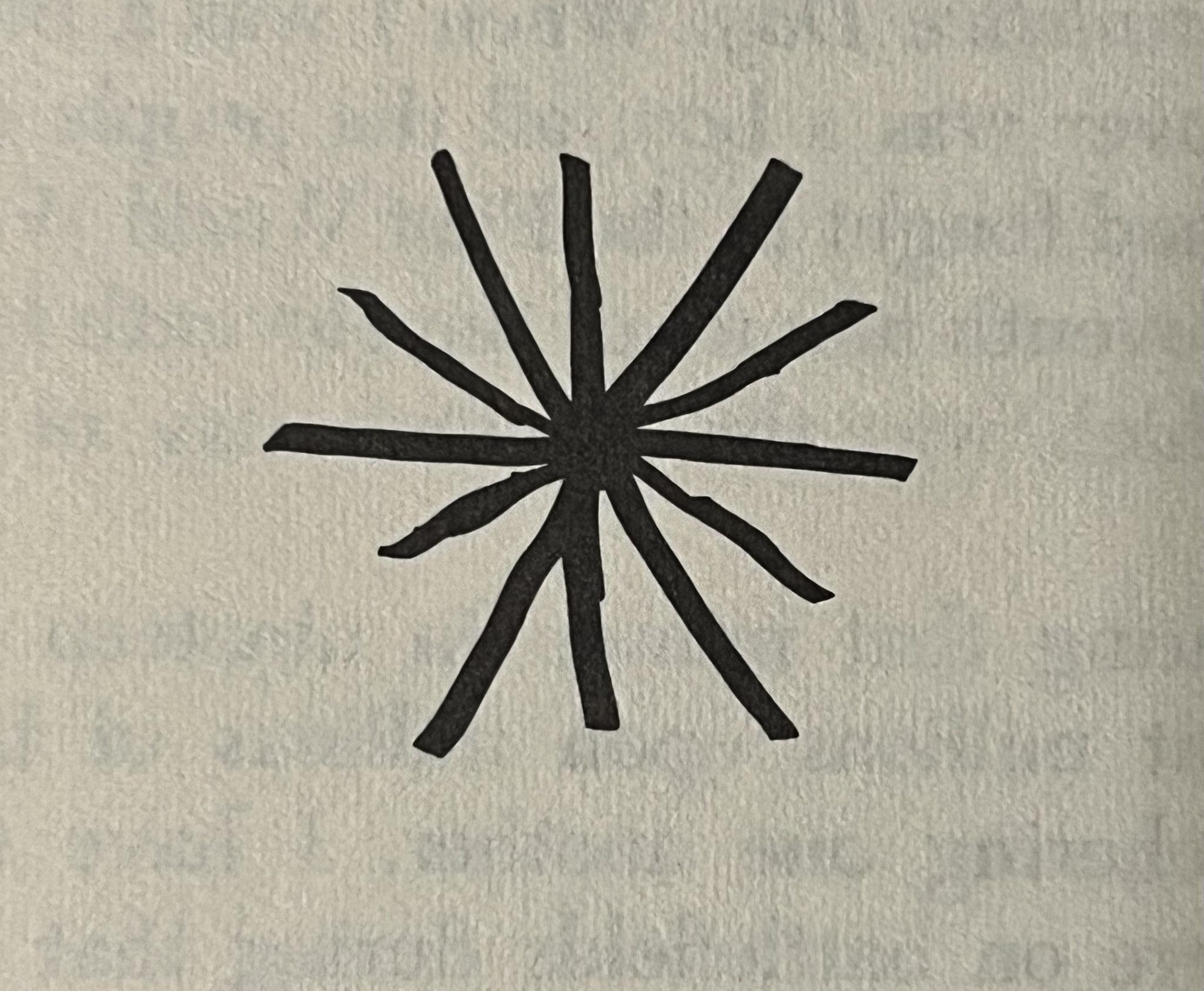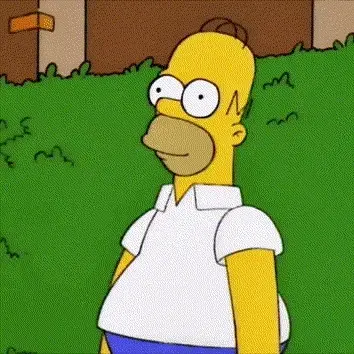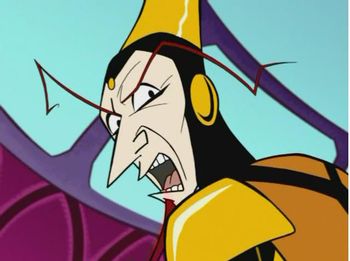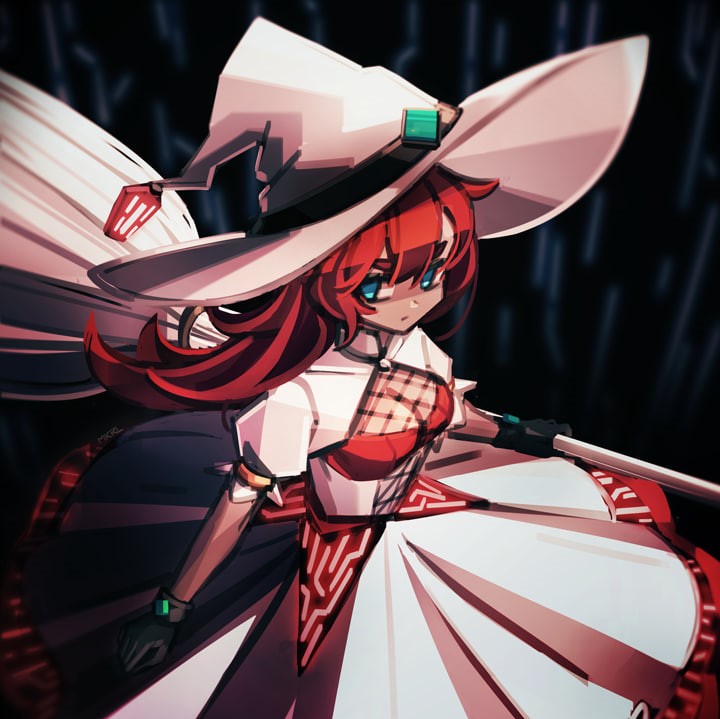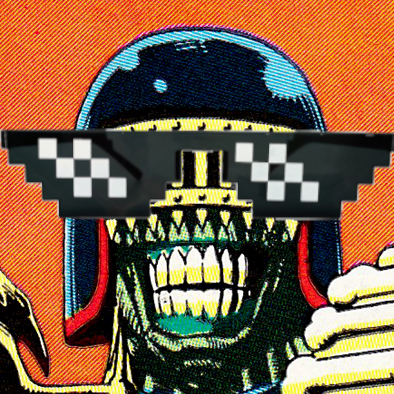originally posted in the megathread but want to make this a more active plea.
seeing the current 'YA good classics boring' discourse on the timeline is making me negatively polarized into finally sitting down and locking in. a lot of people are unread and proud at the moment and I'm embarrassed to be in the same general set as them. I'm a manga/LN/WN/fanfic-head, I used to be an avid reader as a pre-tween (like, 6-8) but all I really remember out of my childhood escapades is Hitchhiker's Guide and fucking Hatchet, and then I got the 'lazy student sparknotes' bug in middle school, and now my primary engagement with reading is stuff published by others online (homestuck (regrettably), parahumans, perusing mangadex and ao3, etc.)
please share your recommendations, I'm grabbing what I know but I want to broaden my horizons here. doesn't have to be the classics exactly, just, like, serious (don't know how else to describe it). I'm not trying to be elitist, really just want to be better read.
current backlog thus far obtained purely through osmosis, very little prior interaction:
- Pride and Prejudice – Jane Austen
- Jane Eyre – Charlotte Brontë
- Wuthering Heights – Emily Brontë
- Three-Body Problem – Liu Cixin
- House of Leaves – Mark Z. Danielewski
- White Noise – Don Delillo
- American Psycho – Bret Easton Ellis
- Dune – Frank Herbert
- Ulysses – James Joyce
- The Dispossessed – Ursula K. LeGuin
- One-Hundred Years of Solitude – Gabriel García Márquez[1]
- Blood Meridian – Cormac McCarthy
- The City and The City – China Miéville
- October – China Miéville
edit: that's a lot of recs! keep em coming, I very much appreciate it ![]()
I'm gonna wait till I have a chunk of time to parse through these before I further fill out my backlog here
rec'd to me by this thread ↩︎
My long term language learning goal is to read this in Spanish. I tried to read el Amor en los tiempos del colera last year and it was a struggle tho so I’m not quite there yet lol
What will throw you off with 100 years of solitude is not the complexity of the language, but the weirdness and absurdity that will hit you without warning. It sometimes makes you think that you're misreading it.
I can't recommend The Dispossessed enough. It radically changed my perspective on the world and helped me imagine what a different world could look like, really breaks you out of that "Capitalist Realism" mindset. It almost felt like Ursula was speaking directly to me. I felt like a better person after reading it.
House of Leaves is also absolutely killer. Probably a big muse for the viral "Backrooms" and other "analog horror" content. It's a legitimately fun and exciting read that feels like you're really diving into something special, and the framing devices are so gnarly.
A Canticle for Leibowitz is a great read, a major inspiration for the Fallout series if you're into that. Follows the rebuilding of humanity after a massive nuclear war in the 1960s, centering around a a small roadside abbey in the American southwest over the course of hundreds of years.
I really enjoyed Alex Garland's The Beach, which might be better known for the 2000 film with DiCaprio. It's about a comfortably middle-class early 20s british guy who backpacks in Thailand and accidentally stumbles upon a secret and hidden "perfect paradise island" with a granola hippy commune of westerners living on it. It evolves into some cool social commentary and yknow, you see the dark underbelly of what's keeping this "paradise" afloat. It's a cliche, but I think the book had a better execution.
Same thing with Fight Club and The Girl with the Dragon Tattoo. Slightly dated but solid titles that have a lot to say about power, gender, sexuality, and finding purpose in the post-modern world. TGWTDT has some of the most engaging and page-turning characters I've ever seen in media, with the punk anarchist hacker Lisbeth Salander, and the rogue gumshoe journalist and cocksman of stockholm, Mikael Blomkvist. The whole series by Stieg Larsson is amazing if you haven't gotten around to it.
I'd also recommend Aldo Leopold's "A Sand County Almanac". Really amazing meditative stuff in there. Imagine if Walden was written by someone actually competent and self-reliant. That book got me through some really rough times.
Pretty much anything by Vonnegut (Cat's Cradle or Slaughterhouse 5 if I'd have to pick one) or Phillip K. Dick (maybe VALIS if I had to pick one)
Catch-22 by Joseph Heller is really fun, and (regrettably) quite topical again
Jerusalem by Alan Moore, the whole thing is cool but especially if you're thinking about reading James Joyce, there is a chapter written in the style of Finnegan's Wake
The Mars Trilogy by Kim Stanley Robinson, a bit of a
 heavy story about the colonization of Mars
heavy story about the colonization of MarsYes it’s one of the few LOL books out there, he has another good one on corporate culture I can’t remember the title tho
Seconding Slaughterhouse 5, adding Breakfast of Champions.
Mother Night by Vonnegut is criminally underrated. The movie version is also excellent.
Add more LeGuin Notably Left Hand of Darkness.
And of course the Lathe of Heaven
Just started reading Left Hand, it's my first LeGuin. I was in love just from reading her foreward. Still just pages into the 1st chapter but I'm stoked.
Not my first LeGuin but I'm really just getting into it myself but I can already tell it's a banger. My partner adores it so I'm hype too.
Don't sleep on the Earthsea books, either. They're wonderfully thoughtful and creative, they're quick reads, and they upend a lot of tired fanatsy tropes.
They are definitely on the short list for further LeGuin times
I know I am late to the party, but I'm passionate about this subject and wanted to make a meaty EfFoRt pOsT about it.
First of all: please rest assured that a lot of "Great Literate" really is not that great. Charles Dickens got paid by the word, so his prose is way too wordy. His "masterpiece" David Copperfield is literally just about a self-insert character (a British writer who works his way up from poverty to riches) that contains re-hashes of plots from his previous novels all jammed together. So, if you're reading a "Great Literature" novel and you think to yourself, "Hey, this kind of sucks," then it very well might just suck. Please don't torture yourself reading an 800-page classic just to have read it, like I have done myself in the past. For example, people say Ayn Rand is "a great writer," and that even if you hate her right-wing politics, you have to "respect her skills" as an author. Complete bullshit. "Atlas Shrugged" is literally just young adult fiction for adults who never grew up (i.e. libertarians). Your time is important, so don't waste your time on a book you hate. /end rant
Here are some notes on authors I have read:
Mark Twain is probably best American writer of all time, but golly he loves to listen to himself talk. For him, I would recommend his non-fiction short story about deserting from the Confederate Army - it's concise and my favorite work of his. https://www.youtube.com/watch?v=QJlfGWhV0jc
Jane Austin is very hit or miss - in real life she was wealthy and racist (although not much MORE racist than other rich white people at the time), so she writes characters who have fortunes built off colonial exploitation and never even mentions that that might be a bad thing... Also she wrote primarily about finding the ideal marriage, giving advice for how to navigate the world of romance, but then in real life she never got married, so take that information how you will... Mark Twin absolutely hated Jane Austen's writing, and I think it pales in comparison to other female authors like the Brontë sisters and Mary Shelly, but tastes vary.
Speaking of Mary Shelly, I highly recommend "The Last Man." It's so good. Mary Shelly invented body horror sci-fi when she wrote Frankenstein, and then she invented Steampunk with The Last Man. Most people don't even know that "The Last Man" a steampunk novel, but if you read it closely, she says that almost all agricultural work has been automated by steam-powered automatons, among other subtle world-building lines. The book would make a fantastic HBO mini-series, and it embodies the spirit of the Romantic era very well. https://www.youtube.com/watch?v=9Q3_ChMaOUY
Two other big examples of the Romantic era, "The Count of Monte Cristo" and "The Three Musketeers" series by Alexandre Dumas, still hold up pretty well. But be aware that "Musketeers" in 1600s France were literally the same thing as CIA secret agents in America today, or James Bond 007 during the Cold War. They were gunmen of the monarch who carried out extrajudicial murder and torture to uphold his oppressive policies. But of course, in pop culture, this evil is turned to good through the magic of storytelling (as in James Bond, Jack Ryan, etc.).
As to Shakespeare, he holds up pretty well, although I want to hurl every high school teacher who makes kids READ Shakespeare into a black hole. Shakespeare is meant to be WATCHED! He basically wrote screenplays! His 8-play sequence about the Wars of the Roses (Richard, Henry, Henry, Henry, Richard) is my favorite from him, and it even includes a lower-class revolution against the rich. Also: most his Shakespeare's plays are remakes and reboots. A lot of people are shocked to hear that, but it's true. All the history plays are adapted from preexisting books, Romeo and Juliet was a book first, King Lear had been adapted many times before, and even Hamlet was literally made into a play in London less than 30 years before Shakespeare's version.
The "objectively best" book I have ever read is "Don Quixote, Parts I and II" by Miguel de Cervantes. Holy shit, it's so good. It was written at the same time Shakespeare's plays were, but it holds up much better. I was laughing out loud at multiple points. I think Part II is also better than Part I, and was WAY ahead of its time. An absolute must-read.
"Moby Dick" is much more religious than you might think. One whole chapter is just a priest giving a sermon. The relationships are very under-developed, and the plot meanders a lot into random places, but there is a lot of good atmosphere and allegory.
Haruki Murakami and Thomas Pynchon are both kind of fun to read, but there is not always an obvious "point" to their stories and sometimes it feels like they are just throwing weird shit in there for the sake of having weird shit in there.
"The General in His Labyrinth" by Gabriel García Márquez is really great, and thought provoking, but you kind of have to already know the biographical details of Simón Bolívar's life in order to understand everything that's happening.
"The Rime of the Ancient Mariner" by Samuel Taylor Coleridge and "The Canterville Ghost" by Oscar Wilde are absolute banger spooky short stories, perfect for Halloween. https://www.youtube.com/watch?v=GqHfg042i24 + https://www.youtube.com/watch?v=_KQDdcoKoT8
James Joyce is probably the most talented writer of all time, but he also got exponentially more pretentious and up his own ass the older he got. My favorite work from him is his early anthology "Dubliners," which contains one of my favorite short stories, "The Dead." I have also read Ulysses, but Ulysses just did not grab me or move me emotionally as much as Dubliners did.
H.G. Welles and Jules Verne are the fathers of modern-day science fiction, and their books mostly hold up, although some parts do feel very dated.
Michael Crichton is I.M.O., the best "pulp sci-fi" writer of all time. His novels are not literature, but they have a great structure to them and explore their topics well. "The Andromeda Strain" is excellent, both the novel and the very loyal movie adaptation. He is definitely sexist though (always writes a "strong female character" as a love interest that ends up "letting her guard down" and falling for the main dude despite him being older, etc.).
Stephen King is, I.M.O., the best "pulp horror" writer of all time. Like Crichton, his books are not literature, but they have compelling characters and always some kind of addictive "hook" to them. King's biggest weakness is that he often has half-assed endings. All his books also, very vaguely, take place in the same universe, which is all tied together by the "Black Tower" octology, which itself is very fun. But King's overall "lore" has more plot holes than Swiss cheese, so don't take anything he writes too seriously. His short stories like "The Shawshank Redemption" are also really good.
If you are looking for modern, hard sci-fi, I really recommend Alastair Reynolds, who started out by getting a PhD in astrophysics and then started writing a sci-fi universe mostly bound by what we know to be the actual limits of science and technology. "Revalation Space" is his future history.
I just recently read the excellent sci-fi stories of Ted Chiang, who got a degree in Computer Science before becoming an author. He has actually not written any novels, but has two great short story collections. One of his stories was adapted into the movie Arrival (2016), which blew me away.
But my favorite author is, of course, myself, Kurt Vonnegut. I definitely recommend Vonnegut to every empathetic person on earth, but it is hard to know where to start. Vonnegut is like a box of chocolates: you never know what you are going to get. Every one of Vonnegut's books is about something different, and your enjoyment will depend on how much you care about the "thing" he is examining. Want to examine religion? Read Cat's Cradle. Want to explore evolution? Read Galapagos. The automation of work? Player Piano. Asexuality? Deadeye Dick. The horrors of war? Slaughterhouse V. Propaganda? Mother Night. The dark side of American life? Breakfast of Champions. The meaning of life itself? Sirens of Titan. If you're not sure what interests you the most, start with the short story collection Welcome to the Monkey House to see if you like Vonnegut's witty, concise, sarcastic, fourth-wall-breaking style.
Sorry about the wall of text, but I love when people get interested in stories that have a deeper meaning to them. Literature shows you how other people think and feel, opens your mind to new possibilities of how the world can work, and helps you understand your place in the world, at least it did so for me.
please rest assured that a lot of "Great Literate" really is not that great.
I don't know if it counts as "Great Literature" but I read Dracula not that long ago, and my god it was so melodramatic.
I found YouTube links in your comment. Here are links to the same videos on alternative frontends that protect your privacy:
Link 1:
Link 2:
Link 3:
Link 4:
It's not YA but is very digestible to most age groups: the Discworld books. I'd say start with Guards, Guards! or Wyrd Sisters and proceed from there. The books aren't exactly chronological and jump between different characters in the same setting, but if you decide to follow the Guards or Witches arcs you'll be well set. There's also standalones, but generally the first two Discworld books are worth skipping since they're more prototypes of what the series would become. Pratchett has a really fantastic way of writing about human nature.
but generally the first two Discworld books are worth skipping since they're more prototypes of what the series would become.
While I agree factually, they do a good job introducing the setting and many recurring characters. It's the rough sketch that later books fill in with greater details.
Agreed. They first two are rough compared to other entries, but they're still important.
I think Guards! Is most people's entry point. Discworld has several "series" within it that follow particulae groups of characters. There's the Ahnk Morpork guards, Death, Rincewind. You can probably find a guide online.
If I could put my finger on it, the first two books do the heavy lifting for worldbuilding. The vocabulary, like spinward, established in those books. It lets the other books breeze past these descriptions. However, you could also look this stuff up online these days for visuals and jargon.
spoiler
My favorite way to read the first two books is we, the Readers, are embodied in Twoflower's character. We're getting led around Discworld like a tourist by a wizard, treating his constant warnings about what's ahead like the words of a tour guide. We're laughing and going forward despite all the protesting of Rincewind just like Twoflower.
Pratchett also tends to lean on real world history and culture a lot - stuff like The Last Continent, where rincewind visits magical australia, is mostly just actual australian stuff, including the boat race in the dry riverbed. Offhand jokes - like an ornamental hermit in a garden, or tales of vampire watermelons - are often just pulled from real life or folklore. Even the main plot of Jingo, where an island rising out of the ocean starts a war only to sink again a few days later, is just a thing that happened, all the way down to a war being started that didn't resolve until after the island sank again.
My sister really liked the original frankenstein by mary shelley, also Interview with the Vampire by anne rice
Frankenstein is very good. Mary came out of the gate running and set a standard most sci fi writers can't touch.
That's a great list you already have, I would second The Three Body Problem, The Dispossessed, Blood Meridian, and both books by Miéville. I also loved Iron Council by him.
Looking through the fiction I've read over the past few years and enjoyed, I would pick out:
- The Southern Reach Trilogy (aka the Annihilation series): truly just unbelievably good cosmic horror with a lot of iconic passages. Annihilation beat out the second book of the Three Body trilogy for the Hugo award when it came out, and honestly it's deserved.
- A Memory Called Empire: This one won the Hugo award recently, it's like a sci-fi imperial court drama following an ambassador from a culture that records & implants memories into each successive generation to benefit from accumulated life experience.
- Babel: honestly this is verging on YA but it's good enough to include. It is like anticolonial harry potter basically.
- Ducks: Two Years in the Oil Sands: a graphic novel by Kate Beaton, the Hark! A Vagrant webcomic artist. Includes some SA content.
- The Ministry for the Future: if you want some climate doomerism but also some climate hope. A bit lib at times but accurately captures the scale of the problem.
- Piranesi: second book by the woman who wrote Jonathan Strange & Mr Norrell, a very memorable & imaginative. About a person living in an alternate dimension of infinite halls filled with marble statues, also with its own tides and ecosystem.
- The Player of Games - literally the only Culture Series novel worth reading, fight me
- Diaspora - a great introduction to Greg Egan if you haven't read him before. His most popular book is probably Permutation City but it's a bit rough to get into. This book is the only one I've read that competes with The Three Body series in terms of scale of vision.
- The Left Hand of Darkness - The eternal debate over which UKLG book is better, this or The Dispossessed.
Oh man, I recommended JS&MN and Piranesi is one of the only books I've read in the last year and somehow it completely slipped my mind. It's so good though.
Player is a great starting point for the Culture but it's not even top 3
Slaughterhouse 5 by Kurt Vonnegut. I've read a lot of slop but this is the most "mature" book I've read.
Lotta good on that list. Here's some other "classics" that I think are still relatively accessible.
- Madame Bovary - Gustave Flaubert
- Crime and Punishment - Dostoevsky
- The Brothers Karamozov - Dostoevsky
- The House of the Spirits - Isabel Allende (yes, related to
 )
)
Seconding @BodyBySisyphus@hexbear.net re: Portrait before Ulysses with one additional suggestion -- read Joyce's short story from the end of Dubliners "The Dead" - it's a classic and deserves the love it gets.
Gotta get a graphic novel in:
- Maus - Art Spiegelman - there's a reason it's GOATED and Eli Valley did the comic on it.
Parable of the Sower by Octavia Butler is really really good and was very frighteningly prophetic. Almost all of it has basically already happened.
Alexandre Dumas straddles the line between pulpy, soap opera-like drama and suspense and classic literature. The count of Monte Cristo is one of my top 10 books because it's so extra. All of his other ones are great, too.
Yeah, but there was plenty of other slop at the time. The one we still read survived because it has at least some literary value.
homestuck (regrettably)
I know that feel
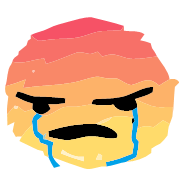
The Alchemist by Paulo Coelho: an Oprah's book club classic, this will change your lifejk please do not take this suggestion seriouslySeconding 100 Years of Solitude, it is amazing.
The Overstory was really good, if a bit depressing (also featuring MMOs as described by an aging boomer who doesn't spend all his time on the internet).
Re: Ulysses, this is Joyce at his more experimental (Finnegan's Wake being his most experimental); you might appreciate it more if you start with something earlier like Portrait of the Artist as a Young Man.
Virginia Woolf: To the Lighthouse, Mrs. Dalloway, The Waves. You can't really go wrong.
The Sparrow by Mary Doria Russell is excellent; see also the sequel Children of God
Pilgrim at Tinker Creek is nonfiction but if you love navel-gazey nature writing, it's excellent.
Starting to realize most of the things on this list are books I read more than a decade ago
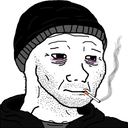
Moving on!
Persepolis and Fun Home are good examples of graphic novel storytelling that aren't just (as they say) capeshit.
The Master and Margarita is fun.
Nabokov: Lolita can be a heavy read; consider Pale Fire. He's really one of the most brilliant novelists the English language has ever had.
If you want to bridge the gap between YA and classic lit, Deathless is considered YA but also densely packed with references to Russian folklore and culture
I dunno, there's probably tons of stuff I'm forgetting. I really need to figure out why I don't read anymore (it is because I'm always on the internet and also have a bunch of journal articles sitting on my desk)
Seriously consider diversifying your literary diet with poetry; it's one of the things fascists love to destroy because it's a nonsystematic and obscure way of perceiving and communicating about the world, and most high school English classes are crap at actually telling you why you should want to read poetry as opposed to just breaking down the nuts and bolts and tossing a few Shakespeare sonnets your way. Nine Gates and The Triggering Town are good reads (and The Triggering Town is short).
Re: Ulysses, this is Joyce at his more experimental (Finnegan's Wake being his most experimental); you might appreciate it more if you start with something earlier like Portrait of the Artist as a Young Man.
As someone who did start Joyce with Ulysses, I would add as my advice that the best way to read Ulysses is just to read Ulysses, if something about the text chafes or feels like an obstacle on a first read, it's probably easier to just plow through that bit and then get into the academics afterwards to get a better picture of the specific questions that come up.
Fair enough, my intro to Joyce was by way of Beckett, so I took the long way around.
Topical, I highly recommend Gate of the Sun by the recently deceased Elias Khoury, a phenomenal Lebanese writer. The book is about Palestinians after 1948 and how they deal with the Nakba in their own ways, whilst also so much more. Really beautifully written.

